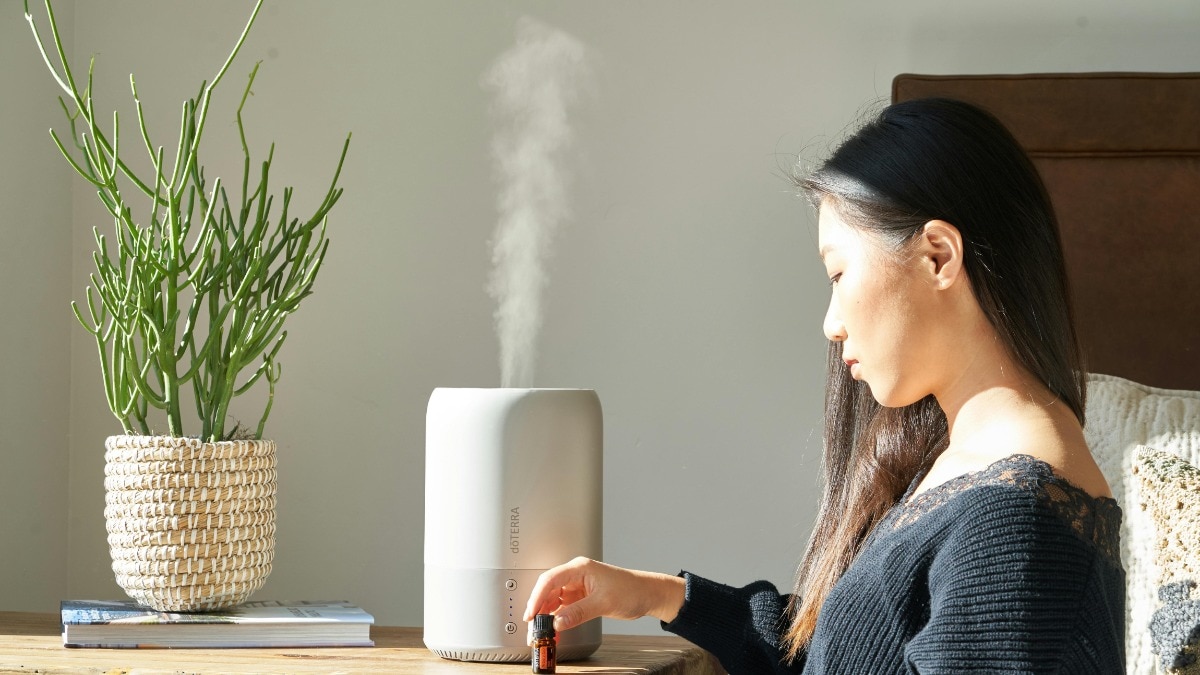How can women prevent burnout in the workplace?
Bazaar India speaks to four inspiring female leaders—from different walks of life—to understand the potential source and solutions for women facing burnout in high-pressure work environments.


Burnout, defined as chronic physical and emotional exhaustion, is a significant health concern taking over workplaces, across the globe. According to the World Health Organisation (WHO), burnout is classified as an ‘occupational phenomenon’, resulting from long-standing workplace stress that has not been successfully managed. While it can affect anyone, research shows that women—especially those in high-pressure work situations—are particularly vulnerable, owing to myriad challenges they face in their personal and professional lives.
Here’s a sobering statistic: after the pandemic, women are facing what experts are calling an ‘exhaustion gap’, with a whopping 68 percent feeling burned out, less driven, and less inspired (compared to 50 percent men). For many women, the problem is more than just about a pressure-packed working environment. Because once their work day is over, many have to return home to unpaid responsibilities like parenting, household chores, domestic work, and caregiving (studies say women spend four times the hours on domestic duties, than men).
As one might expect, this situation is not helping women close the gender gap in organisations—according to research by 360Learning, burnout is the number-one reason why women (25 percent of respondents, to be exact) have already quit their job...or are planning to. Whether this applies to women in leadership positions or not, the distressing consequence is that we stand to be left with fewer females in the workforce, and a significant lacuna in decision-making profiles.
And so, Bazaar India spoke with four female leaders to better understand the different aspects of burnout, and to explore ways in which women can alleviate stress and exhaustion in a demanding work ecosystem.
Anahita Dhondy Bhandari, Chef & Author

“I was with Soda Bottle Opener Wala until 2021, and in 2013, we launched the brand’s first outlet. Having worked with a company for nine years and handling operations every single day not only made me feel burnt out, but also caused a creativity block. I realised this somewhere in 2020, amidst the pandemic. This was my cue to focus on other things that made me happy—I began cooking at home and sharing recipes on social media. I also finished writing my book, which had been on the back-burner for far too long. I also realised that I had not taken a holiday in months...
When I finally left Soda Bottle Opener Wala, I was unsure about what to do next, because I was so accustomed to the adrenaline rush. I felt lost, and it took me an entire year to get back to the rhythm of work. I frequently deal with high-pressure situations, especially in the kitchen, where people can be hot-headed and loud. And what really helps me in such moments is to respond in a calm manner. As a chef, as well as a team leader, it is imperative to accept criticism and feedback in a positive manner. That’s my motto when it comes to dealing with comments on social media, too. I also prefer planning in advance, by making a weekly calendar every Sunday night. This helps me stay on top of things.
I see travel as another way to recharge. Coupled with spending time with my mother. My parents and brother have been extremely supportive of me since the beginning, and they always saw the potential in me. They recognised my passion for cooking, and when I broke the news to them about wanting to become a chef, they didn’t question my decision. In fact, when we were setting up Soda Bottle Opener Wala, there were several instances where they came to pick me up really late at night. The same can be said for my then-boyfriend and now husband...he always knew that my career came first, as it was important for the both of us to establish ourselves before we got married. He’s my biggest cheerleader, and is always standing by my side. And I honestly wouldn’t be here, or anywhere, if I didn’t have that kind of a support system.
Having said that, I do agree that women are more susceptible to burnout. No matter how supportive your partner or your parents are, many tend to believe in the stereotype that women can do it all—and that it is their duty to do so.
Yes, I want to do it all, and I think women, in general, just tend to over-extend themselves, but we don’t realise when that responsibility piles up...and the people around us get used to us doing it all. That’s when burnout strikes, and women realise they need help. It’s necessary to have discussions on finances, or on how to distribute responsibilities in your relationship to reduce the disparity and close the gap.
At work, there are going to be times when things will get extremely strenuous. And as I said earlier, in such moments, you need the support of whoever is around. So it’s imperative to ask for help.
Organisations can also support in different ways, such as engaging and educating their employees. As a leader, there are times one needs to come up with a plan, and give people a break from their routines for a breath of fresh air. And obviously, the most important thing, at an individual level, is to have a healthy work-life balance.”
Supriya Paul, CEO & Co-founder, Josh Talks

“There have been [and still are] phases where the work pressure, the stress of raising capital, and long hours, take a toll on my well-being. I experienced a major burnout phase, physically and mentally, during the pandemic—when there was a lot of uncertainty around us. We were trying to run an organisation and ensure its stability. Just like everyone during that period, I was anxious and not sleeping well. Some of the burnout symptoms that I experienced included feeling fatigued, being crippled by negative thoughts, and frequent cycles of restless sleep.
Journalling my thoughts, open communication with the people around me, and building a routine via exercise helped me cope with burnout.
As an entrepreneur, I have realised that maintaining a healthy work-life balance is not easy. There will always be sporadic phases that keep occurring...so my goal is to maintain a routine that can help me navigate these phases. Putting a structured routine in place also helps create balance—which later helps combat emotional and physical stress. In order to ensure that I have enough time for myself, I follow a system that allows me to spend a lot more time with myself. I have realised that self-care is not a luxury, but an essential part of our well-being and overall success. Participating in meaningful activities and surrounding myself with positive people helps me regain my balance.
While burnout can affect anyone—regardless of gender—there are, indeed, factors that make women more susceptible to experiencing the same. One significant factor is the increased responsibility that women often take up at home, in addition to their professional work. Also, as women, our innate response is to take up every task that comes our way, resulting in not enough time for ourselves.
I believe that one of the most critical coping strategies for women experiencing burnout is to define and communicate boundaries. Establishing a more equitable division of labour at home is also important. Family members supporting each other in sharing responsibilities can help alleviate some of the stressors that contribute to burnout.
Other non-negotiables should include taking time out to care for your body, and making physical activity a part of your day-to-day routine. And finally, try not be too self-critical or feel guilty when you do make time for yourself. I also believe that a prerequisite to addressing burnout at a societal level and creating a healthier work environment is to promote open communication and build an inclusive culture at the workplace...where everyone feels comfortable discussing their concerns and seeking emotional help when needed.”
Manisha Bhasin, Corporate Executive Chef, ITC Hotels

“Wearing a chef’s hat along with being a homemaker is not easy. However, as a mother, it is hugely gratifying when you see your children take pride in your achievements. I prioritise my work and my family as per what requires more attention at a given point of time, and try to strike the necessary balance on both fronts.
Personally, I have an optimistic approach towards burnout, and believe that when you love what you do, you will enjoy the journey. There will be days when you feel differently, but remembering one’s purpose is essential in that moment. For me, food always brings a spring in my step and challenges me to move forward. One has to create opportunities within their scope—and see what can be done to put their best foot forward.
Reinventing oneself in any profession is imperative. As a chef, exploring other cuisines can be a great motivation, as there is so much to learn in the culinary world. Each day is a new day that gives us the opportunity to create and curate for our guests.
There are days that feel stressful, and whenever I am feeling like that, I try to visualise and implement at least one idea that would not only add value to my repertoire, but also broaden my vision. I also turn to hobbies such as painting and pottery for a dose of creative release.
My advice to all the people facing burnout is to indulge in a hobby that is unrelated to your job, because that will give you the fuel to move ahead. Having friends outside your workplace is another way to gain perspective and de-stress.
As far as the question regarding women experiencing more burnout goes, I believe women today are more assertive and aware than before. I also think burnout is not gender-specific—and if someone has run out of steam, solid support at the workplace, home, and from your partner, is crucial. With diversity and equity gaining momentum, for those who do feel the pressure irrespective of gender, many policies are being rolled out by organisations—or they should be—to make the workplace more equitable.”
Divya Gokulnath, Co-founder, BYJU’S

“Burnout is an unfortunate reality of our times, and is hard to escape. One of the early signs of burnout is procrastination and a feeling of cynicism. It’s easy to dismiss these signs as ‘just one of those days’, but I cannot stress enough the importance of identifying and overcoming them early. Unfortunately, women are more susceptible to burnout. The so-called ‘pink recession’ is not just a number, but a cautionary tale.
We are not even halfway through 2023, and we have already seen some amazing female leaders step down— from Marne Levine of Meta and Susan Wojcicki of Youtube, to the New Zealand Prime Minister Jacinda Ardern, who very candidly said that she didn’t have ‘enough in the tank’ to lead. It is distressing to see talented women resigning from their high-power jobs due to burnout, as they navigate more obstacles than men to achieve a similar level of success. They do so while also stepping over invisible threads of societal roles, expectations, stereotypes, and belittling microaggressions to constantly prove themselves.
The ‘broken rung’ towards management positions also leaves women in jobs where their skills are underutilised, which further triggers burnout. The fact that over and above full-time jobs, many women are also designated caregivers at home only exacerbates this inequality. What’s worse is that women are also conditioned to have burnout guilt! It’s a vicious cycle that must be broken. Self-care, self-love, and self-confidence are antidotes to burnout.
I have been able to insulate myself by having a strong support system around me, in my personal and professional life. Reading and meditation are also some things that help me break out of the rut and feed my soul.
It is essential that we learn how to compartmentalise, create boundaries, and prioritise things that bring us joy. When you have two young children, even 24 hours seem short... Personally, I take cues from my mother, who has mastered the art of work-life balance... Growing up, I used to wait for her to come home from her job—a producer at Doordarshan—and hear all about her day. She would be present and approachable at work as well as at home, and I try to emulate her as much as I can.
As far as organisations are concerned, the case for a more empathetic work culture has never been stronger. But as female leaders, we must take on the task to fix the broken rung, because every time we stand up for ourselves, we stand up for the million women who do not have the means to do it. Organisations should set up counselling networks dedicated to help burnt-out employees, while tailoring policies for working parents. These changes may appear challenging, but an organisation’s culture has a far-reaching impact on not just the employees, but business performance, too.
On a social level, change must begin in the classroom—for it to reflect in boardrooms. Educating our girls at the same level as boys sets off a domino effect. Also, it’s time we normalise taking breaks, pausing, and prioritising our well-being. For far too long, women have carried the emotional burdens at the workplace and at home, too. It’s time we shed the load and unleash our potential.”










